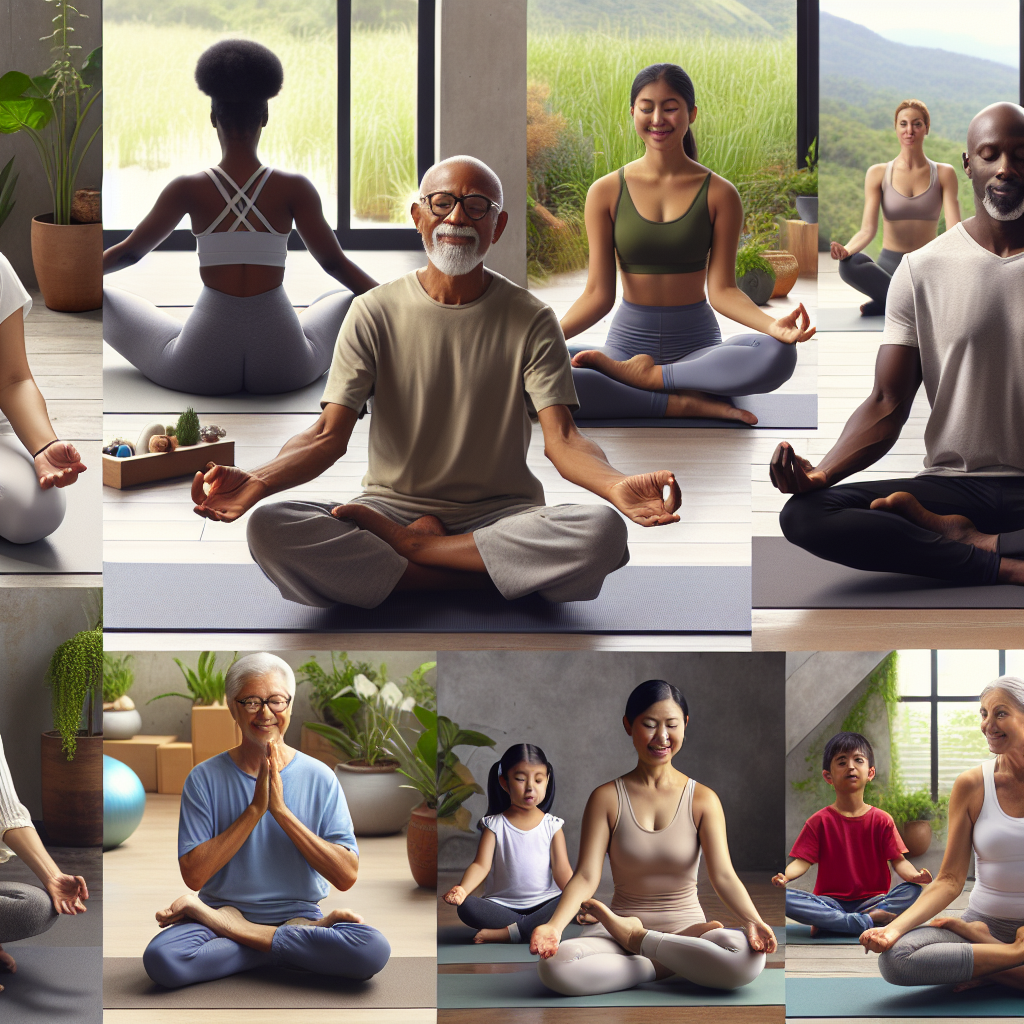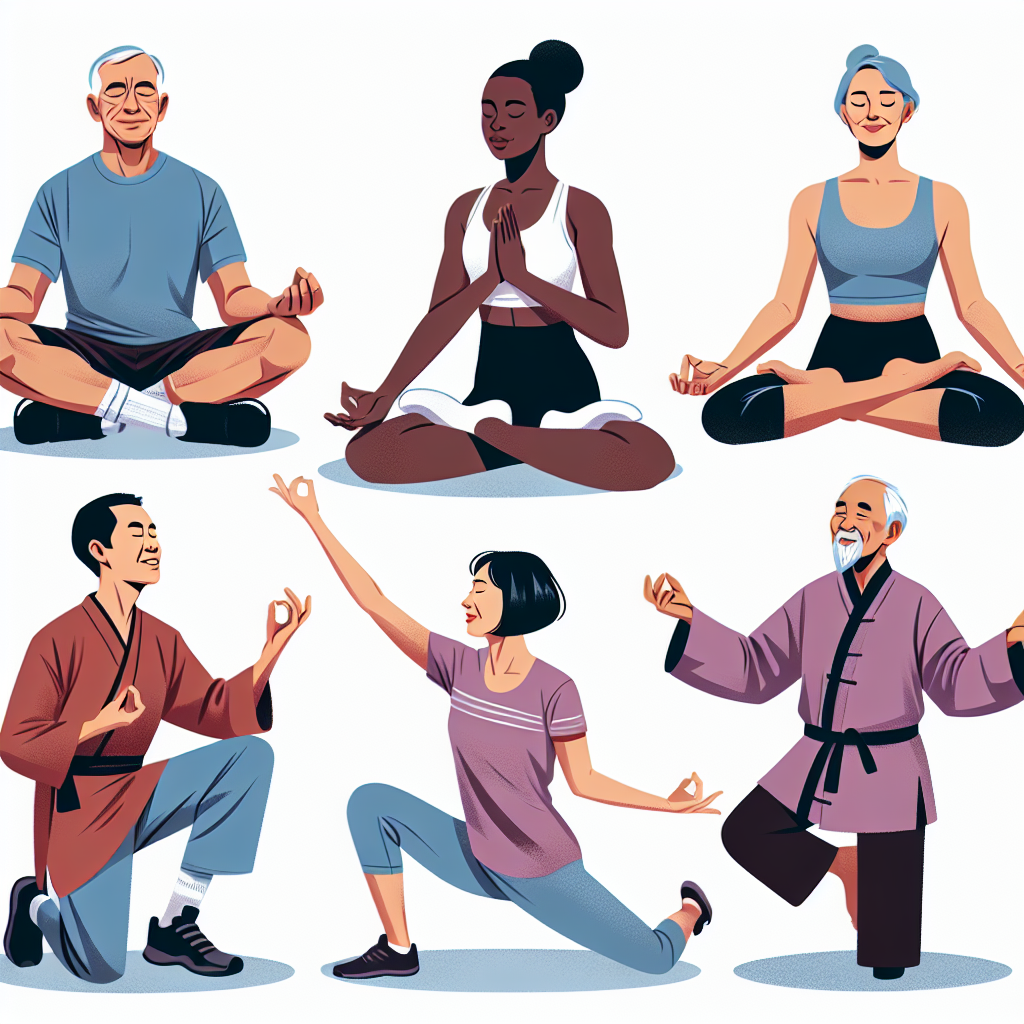How Does Body Awareness Contribute To Developing A Positive Body Image?
Picture yourself standing in front of a mirror, carefully observing each curve and contour of your body. Focusing on this reflection, consider how awareness of your physical self significantly influences your perception, love, and acceptance of your body. This intriguing premise sets the stage for the article “How Does Body Awareness Contribute To Developing A Positive Body Image?”. Herein lies a fascinating exploration of body mindfulness and its role in fostering a healthier body image. As you immerse yourself in this informative discourse, you’ll discover the interplay between body consciousness and its consequent impact on your overall self-esteem and confidence. Expect to gain new insights into the less-trodden path of body positivity through the lens of body awareness.

Understanding Body Awareness
Definitions and explanations of body awareness
Body awareness, in its simplest form, refers to the conscious recognition of your body, your movements, and the sensations you experience. It is the understanding of your body in space and time and its interactions within the environment. Like an internal compass, body awareness helps you navigate through your world, providing feedback about where you are and how you are moving. It is a critical aspect of proprioception, the sense that allows you to identify the position and movement of your body without utilizing sight.
The importance of heightening body awareness
Heightening body awareness is akin to shining a light on the subtle nuances of your bodily experiences. This illumination fosters deeper connections between your mind and body, enriching your conscious understanding of your physical self. Beyond granting you a clearer perception of your posture, movement, and breathing, heightening body awareness can also enhance your emotional intelligence – recognizing how varying emotions manifest themselves in specific physical sensations.
Relation between body awareness and body image
Body image extends beyond what you see in the mirror, encompassing your perceptions, feelings, and thoughts about your physical self. A secured sense of body awareness can play a pivotal role in fostering a positive body image. The more in tune you are with your body and its capabilities, the more likely you are to appreciate it beyond conventional standards of physical attractiveness, transcending into a realm of respect and love for your body for what it does, rather than how it looks.
The Science Behind Body Awareness
The role of the brain in body awareness
Your brain plays a central role in body awareness – working like the conductor in the orchestra of your bodily functions. It ties nature and nurture, sensations and perceptions, memories and expectations into a coherent representation of your body. Neuroscientific studies have pinpointed parts of the brain, such as the insula and anterior cingulate cortex, that process interoceptive information, contributing to your conscious awareness of your body’s internal state.
Physiological aspects of body awareness
Physiologically, body awareness is powered by a sophisticated network of neurons, receptors, and pathways. Your skin, joints, and muscles house millions of sensory receptors that provide real-time information about touch, pressure, temperature, and movement. Your vestibular system, situated in your inner ear, contributes orientation and balance. This steady stream of sensory data is then collated, processed, and interpreted by the brain – supporting your understanding of your body and its relationship with the environment.
Neurological studies related to body image and self-perception
Neurological studies have significantly expanded our understanding of the intricacies between body awareness, body image, and self-perception. Brain imaging techniques have revealed specific areas of the brain involved in self-perception and the formation of body image. Studies have found associations between decreased gray matter volume in the insula and poor body image, suggesting a close relationship between our perception of our body’s internal state and how we view our physical selves.
Cultivating Body Awareness
Practices that promote body awareness
Multiple practices can invigorate your body awareness. Activities like yoga, meditation, Tai Chi, and Feldenkrais can bring your attention squarely to your physical self, encouraging you to notice even the subtlest of sensations. Dance and martial arts, too, can foster a deeper connection with your body by challenging you to move and respond with agility, balance, and precision.
The role of mindfulness in increasing body awareness
Mindfulness, the practice of present-moment awareness with a nonjudgmental attitude, can serve as a potent tool in increasing body awareness. By paying mindful attention to your body – be it through a body scan meditation or mindful eating – you foster a robust connection with your physical self, inviting an exploration of your body in its raw, unfiltered reality.
Establishing routines and habits that enhance body awareness
Establishing routines and habits that draw regular attention to your body, its needs, and its responses, fuels body awareness. These can range from daily mindful stretches, conscious breathing exercises, hydration checks, to regular bodily health check-ups. Paying closer attention to your diet and the effects of different food and drink can further aid in the enhancement of body awareness.

Body Awareness and Body Acceptance
The concept of body acceptance
Body acceptance is the compassionate acknowledgment and respect for your body, embracing its strengths, vulnerabilities, and imperfections. It is a proactive shift away from body shaming and unrealistic beauty ideals towards owning and appreciating your unique physical identity.
How body awareness promotes acceptance
Heightened body awareness can be a critical catalyst in promoting body acceptance. It provides a mindful mirror that reflects your body’s authentic reality – its capacities, its limitations, its signals of pleasure and distress. This realization often inspires personal respect for your body, nurturing acceptance for its authenticity rather than resentment for its perceived flaws.
The impact of body acceptance on body image
Buffered by body awareness, body acceptance can reshape a negative body image into a more positive one. It clears the fog of societal beauty standards, allowing a crystal clear view of your physical self. Acceptance often sparks appreciation – celebrating your body for its strength, functionality, and resilience can improve how you perceive, think, and feel about your physical self.
Body Awareness and Body Positivity
Explanation of body positivity
Body positivity is an empowering paradigm shift that advocates for the acceptance and appreciation for all body types, shapes, and sizes. It challenges normative beauty ideals, promotes healthy body image, and encourages self-love and respect for the body you inhabit.
Body awareness as a pathway to body positivity
Body awareness can pave the pathway to body positivity. A strong understanding and appreciation of your body and its abilities can foster self-awareness and self-respect. By experiencing your body’s capabilities firsthand, you’re more likely to appreciate its power, versatility, and resilience, contributing to a positive perspective of your body.
How body positivity cultivates a positive body image
Body positivity can play a crucial role in cultivating a positive body image. By championing acceptance and celebration of all bodies, it simultaneously challenges societal beauty standards. It provides you with a fresh lens to perceive your body – one that emphasizes individual strengths, functionality, and uniqueness. This shift can profoundly alter your feelings and beliefs about your body, fostering a more confident and respectful body image.
Body Awareness in Therapeutic Settings
Use of body awareness in therapy and counseling
Fostering body awareness has become a valuable tool in therapy and counseling for numerous psychophysical conditions. Techniques like Body Cognitive Behavior Therapy, dance movement therapy, or Somatic Experiencing help clients explore and understand their physical sensations, posture, and movements to better regulate their emotions, thoughts, and behaviors.
Benefits of therapeutic body awareness practices
Therapeutic body awareness practices can offer a multitude of benefits. They can help uncover unconscious emotional patterns, bridge the mind-body disconnect often seen in trauma and anxiety disorders, and foster self-regulation. These techniques can also instill a more compassionate and understanding relationship with the body, which can have a positive impact on body image and overall self-esteem.
How therapy can foster a positive body image
Therapy, equipped with body awareness techniques, can play a significant role in fostering a positive body image. Through gentle exploration and acknowledgment of bodily experiences, therapy can help alter negative perceptions and attitudes towards the body. It paves the way for embracing body acceptance and positivity, ultimately fostering a positive and healthy body image.
Body Awareness in Physical Activities
Role of body awareness in sports and exercise
Body awareness plays a vital role in sports and exercise. It influences coordination, balance, agility, and timing, all of which are essential for optimal physical performance. It allows you to tune into cues your body sends during physical exertion and recovery, enabling you to avoid overtraining, injuries, and to optimally push your bodily thresholds.
How physical activity enhances body awareness
Physical activities, by their very nature, demand attention to the body. The mindful, methodic practice of exercise, the fluid transitions in yoga, the explosive movements in martial arts – all these activities can stimulate sensory awareness, improving your understanding of how your body moves, reacts, and performs.
Influence of physical activity on body image
Regular physical activity can significantly influence body image. Not only do physical changes in the body boost self-esteem, but the sheer recognition of your body’s abilities and strength can help you appreciate your physical self beyond its appearance. Regular exercise often instills a sense of mastery and accomplishment that is likely to illuminate a positive body image.
Impact of Culture and Society on Body Awareness
Sociocultural norms and their influence on body awareness
Sociocultural norms, reflected through mass media, fashion, and beauty industries, influence not only our body image but also our body awareness. These norms often narrow our attention to specific aspects of our body – usually those that align with society’s beauty ideals – skewing our holistic awareness of our body.
How culture affects our understanding of bodies
Culture significantly impacts how we understand and relate to our bodies. Different cultures, with varying beauty norms, health ideals, and body norms, can shape our perceptions, opinions, and expectations of our bodies. This can directly affect how we experience and appreciate our bodies, influencing our body image and body awareness.
Societal shifts towards body positivity and their effects on body image
Fortunately, recent years have seen growing societal shifts towards body positivity. More and more spaces are calling for a celebration of body diversity, challenging restrictive beauty standards. This shift can have significant effects on body image – encouraging a broader, more inclusive perspective on beauty, promoting acceptance, and positive feelings towards one’s body.
Challenges in Developing Body Awareness
Impediments to developing body awareness
Despite its benefits, developing body awareness is not always straightforward. Distracted living, constant rushing, sedentary lifestyles, unconscious eating, or even certain medical conditions can fling our attention away from our body. Moreover, rigid societal beauty norms can stifle our appreciation for our body, fostering a negative body image that impacts body awareness.
Difficulties in maintaining a positive body image
Maintaining a positive body image can be a herculean task in our society that lays heavy emphasis on appearance. Unrelenting exposure to unrealistic beauty ideals, comparison with peers or celebrities, societal or self-induced pressures to conform can all serve as roadblocks in fostering and maintaining a positive body image.
Addressing these challenges through heightened body awareness.
Awareness, however, can be the enemy of these impediments. By nurturing heightened body awareness, you can re-establish your connection with your body, learning to respect it, listen to it, and care for it. This enhanced connection and understanding of your body can help counteract the socially-induced pressures on appearance, helping foster a positive body image.
Future Directions in Body Awareness Research
Current gaps in the understanding of body awareness
While significant strides have been made in unraveling the intricacies of body awareness, gaps in our understanding of it still linger. Several aspects of body awareness – its components, mechanisms, direct and indirect influences on physical and mental health – still remain enveloped in the dusk of unknown.
Potential future studies on body awareness and body image
Future studies could delve deeper into how body awareness shapes our body image and vice versa. What are the neurobiological underpinnings of this connection? Can increased body awareness intervene in the established cycle of negative body image? Can enhanced body awareness buffer the effects of harmful beauty standards on body image? These questions remain open to exploration.
Importance of continued research in this field
Continued research in this field holds immense importance. A deeper understanding of body awareness, and its relationship with body image, can guide the development of more effective interventions and strategies. It can inspire society at large to rekindle their connection with their bodies, fostering self-appreciation, body acceptance, and ultimately a positive body image. Through this, not only do we grant ourselves the freedom to inhabit our bodies with love and respect, but we also pave the way for future generations to do so.

